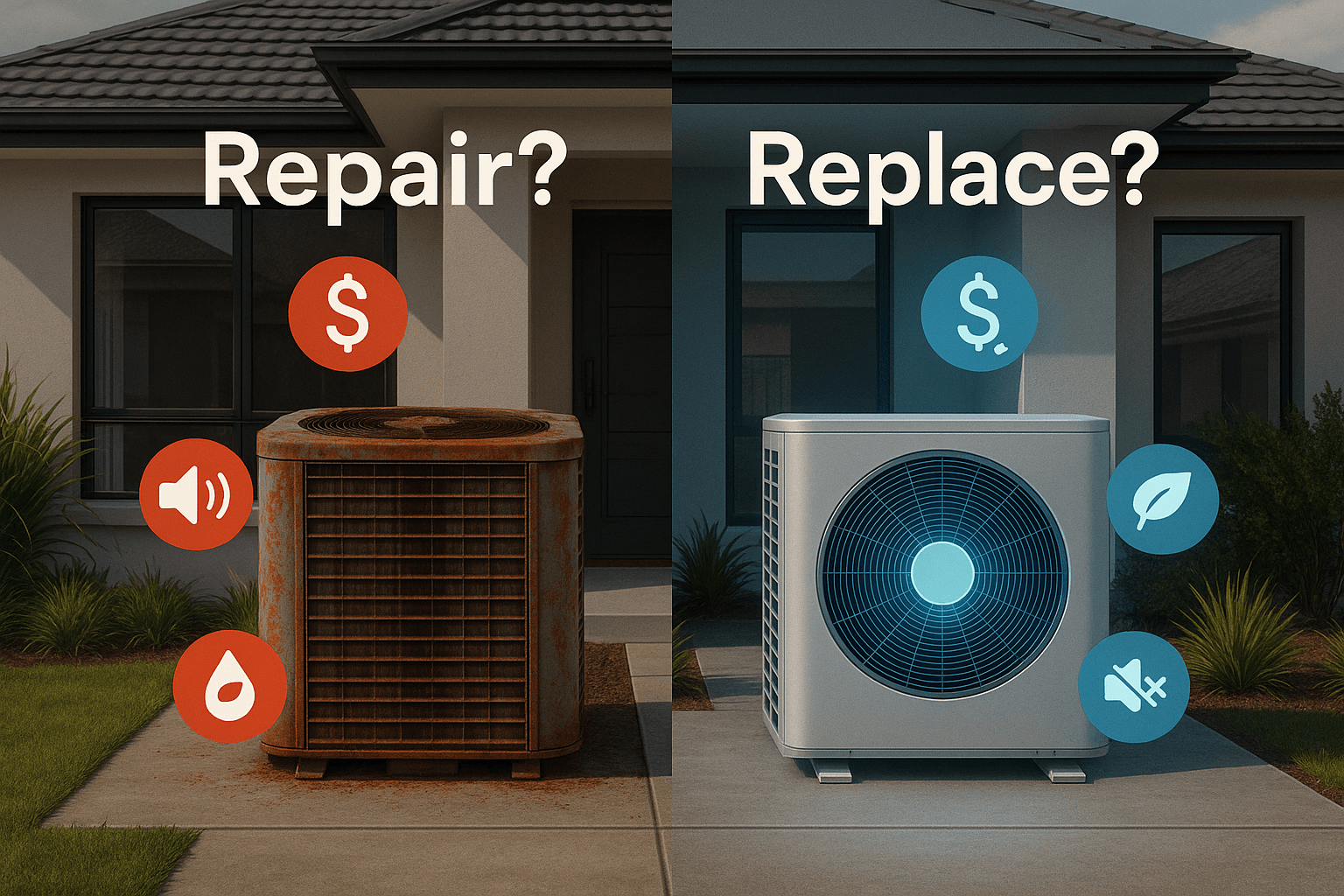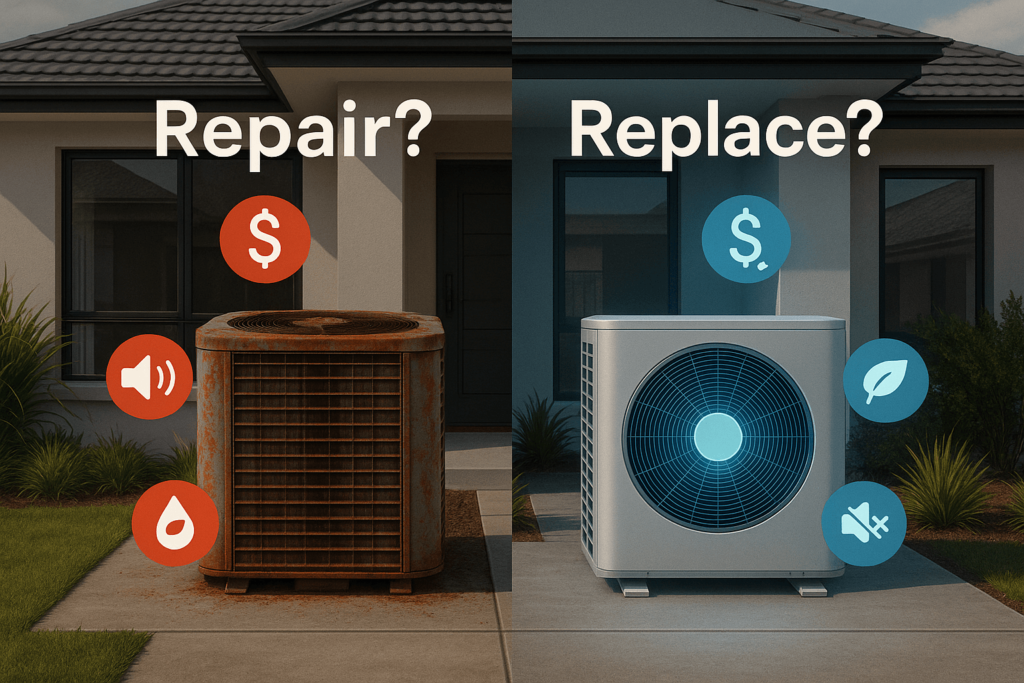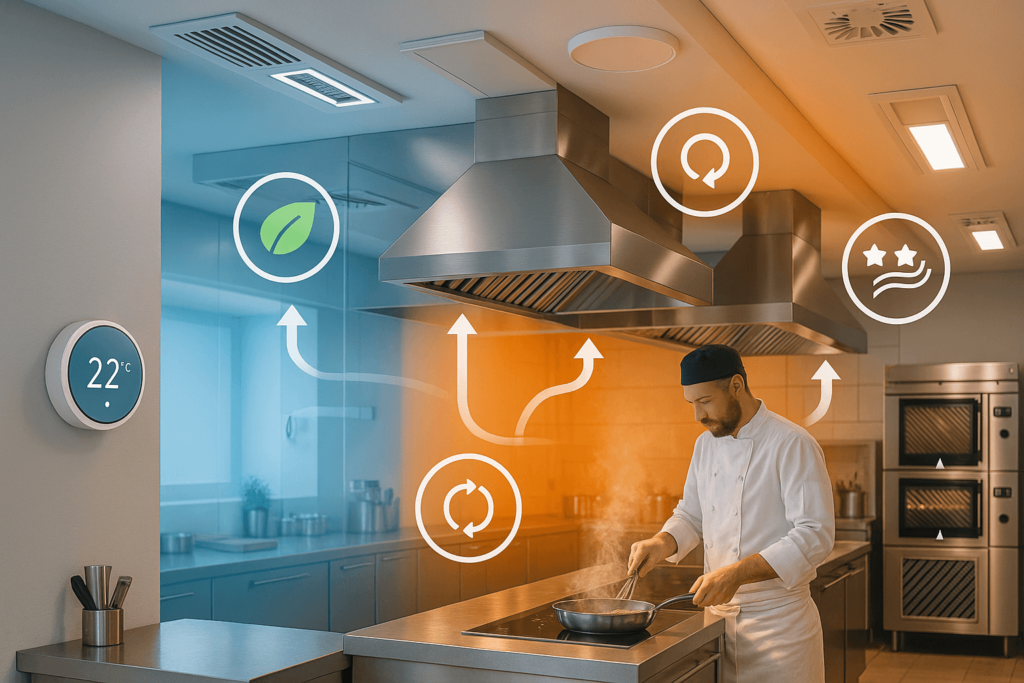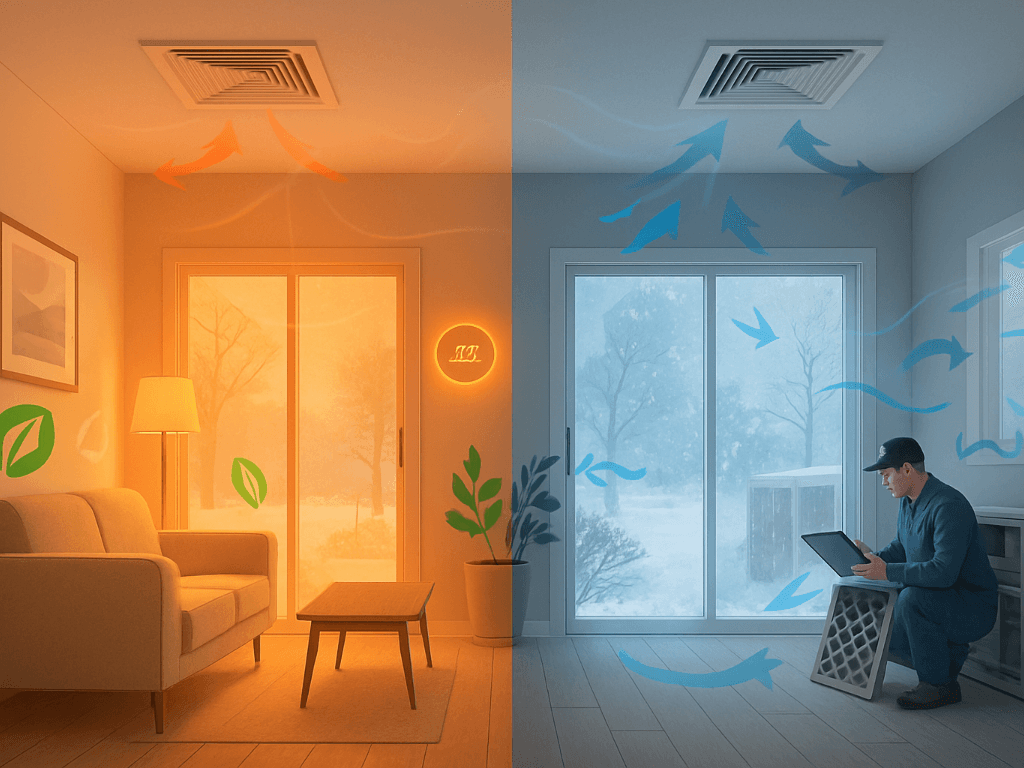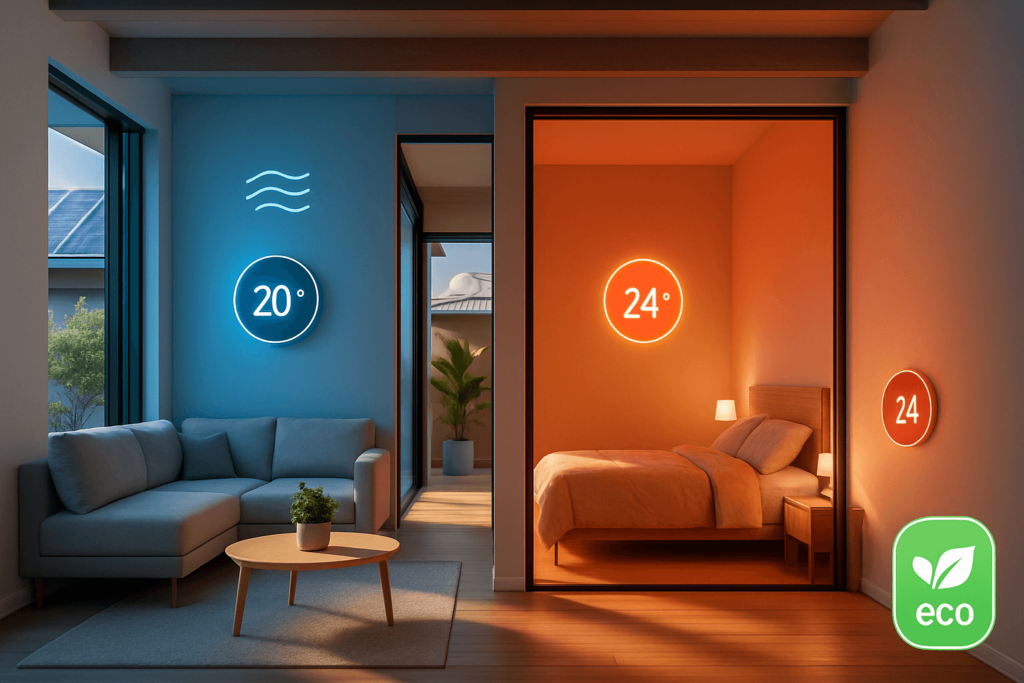Deciding whether to repair or replace your HVAC system can feel overwhelming, especially when balancing costs, efficiency, and long-term sustainability. As Australia’s trusted provider of energy-efficient solutions, Zero Energy is here to simplify this decision. In this guide, we’ll explore key factors like system age, repair costs, energy savings, and environmental impact to help you choose the best option for your home or business.
Factors to Consider When Choosing HVAC Repair vs Replace
1. Age of Your HVAC System
Most HVAC systems last 10–15 years. If yours is nearing this range, frequent breakdowns and declining efficiency signal it’s time for a replacement. Older units often use outdated technology, consuming 20–40% more energy than modern, energy-efficient HVAC models.
Zero Energy Tip: Upgrading to a new system can reduce energy bills by up to 30%, making replacement a smarter long-term investment.
2. Cost of Repairs vs Replacement
A good rule of thumb is the “50% Rule”: if repair costs exceed 50% of a new system’s price, replacement is more economical. For example:
- A
- 500repairvsa
- 500repairvsa3,000 new system = replace.
- A
- 300repairvsa
- 300repairvsa4,000 new system = repair.
Always factor in hidden costs, like higher energy bills from an inefficient unit.
3. Energy Efficiency and Environmental Impact
Older HVAC systems often use refrigerants like R22, which harm the environment. Modern units comply with Australia’s strict energy standards, using eco-friendly refrigerants and cutting carbon footprints.
Zero Energy’s sustainable solutions prioritise energy efficiency, helping you save money while supporting Australia’s net-zero goals.
Signs You Need HVAC Repair
Short-term fixes:
- Uneven heating/cooling.
- Strange noises or odors.
- Minor thermostat issues.
- Higher bills (sudden spikes).
For these issues, a professional repair can extend your system’s life.
When to Replace Your HVAC System
- Persistent problems:
- Frequent breakdowns (2+ times/year).
- Skyrocketing energy bills.
- Rooms never reach desired temperatures.
- Age over 10 years.
Replacement becomes cost-effective when repairs no longer restore performance.
Benefits of Upgrading to an Energy-Efficient HVAC System
- Lower energy bills: Advanced inverters and zoning reduce consumption.
- Quieter operation: Modern units run 50% quieter.
- Government rebates: Access incentives for eco-friendly upgrades.
- Increased property value: Sustainable homes attract buyers.
Zero Energy’s HVAC systems are designed for Australia’s climate, delivering year-round comfort with minimal environmental impact.
Steps to Decide Between HVAC Repair or Replacement
- Assess your system’s age and repair history.
- Compare repair costs to a new system’s price.
- Calculate potential energy savings with a replacement.
- Consult Zero Energy’s experts for a free efficiency audit.
Make the Smart Choice with Zero Energy
Whether you repair or replace, Zero Energy offers tailored solutions to maximise savings and sustainability. Our team provides:
- Expert assessments of your HVAC system.
- Premium energy-efficient HVAC installations.
- Transparent advice with no obligation.
- Contact Zero Energy today for a free quote or consultation!

